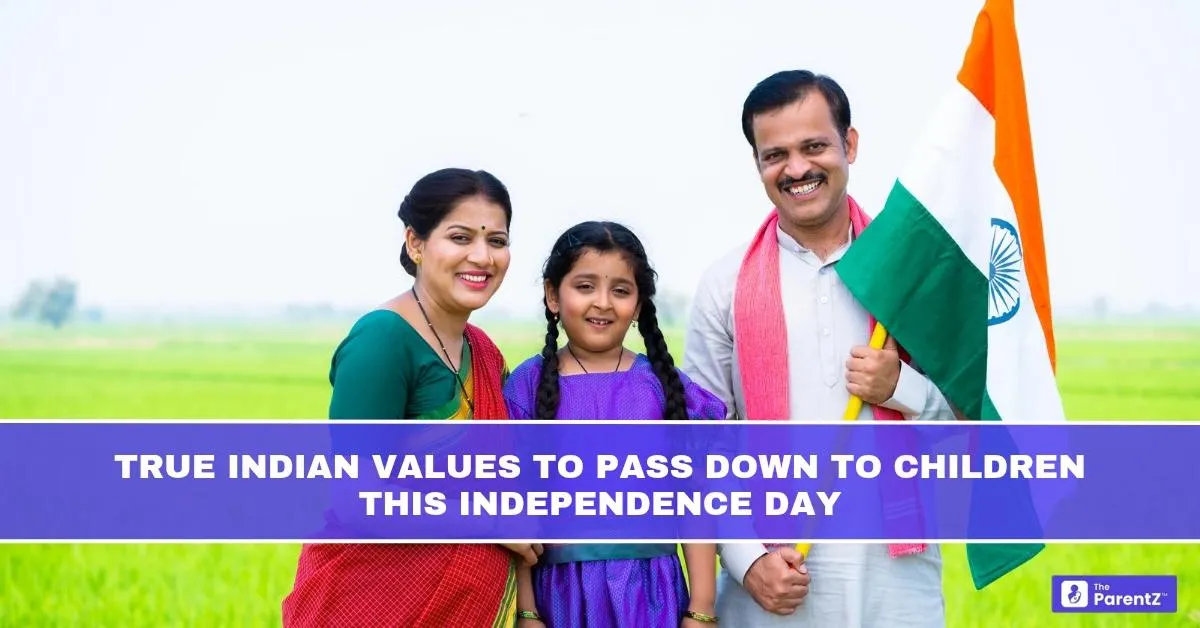Independence Day is not only a time to remember the sacrifices of freedom fighters but also a moment to reflect on the values that define us as a nation. For children, it is an opportunity to learn what it truly means to be Indian beyond waving the flag or singing patriotic songs. Values form the foundation of character, guiding behaviour, decisions, and relationships. When parents actively pass down these values, they help ensure that the next generation grows up with a deep sense of identity, responsibility, and respect for the country.
Respect for Elders and Community
Respect for elders is one of the most deeply rooted Indian traditions. Children can be taught that listening to and caring for elders is a way of honouring wisdom and experience. In daily life, this can be encouraged through polite greetings, offering help without being asked, and spending time listening to grandparents’ stories. Respect also extends to teachers, neighbours, and community members. By practising this value, children learn humility and the importance of social harmony.
Unity in Diversity
India’s strength lies in its diversity of languages, religions, traditions, and cuisines. Children should be encouraged to celebrate differences rather than fear them. Parents can introduce them to different regional foods, festivals, and music, explaining how these enrich the nation’s cultural fabric. This helps children develop inclusivity, empathy, and a strong sense of belonging in a diverse society.
Gratitude for Freedom
The freedom we enjoy today was earned through decades of struggle and sacrifice. Children may not fully grasp its value unless it is explained to them in age-appropriate ways. Parents can share stories of the independence movement, visit historical sites, or watch documentaries together. This gratitude can also be expressed through civic responsibility, such as keeping the surroundings clean, voting when eligible, and respecting the law.
Value of Hard Work and Perseverance
From farmers who work tirelessly in the fields to scientists who put India on the global map, our history is full of examples where dedication and hard work have led to progress. Children should be taught that success comes from consistent effort, even when faced with challenges. Simple habits like setting small goals, completing homework on time, and helping with household chores instill a strong work ethic.
Non-Violence and Compassion
One of the most powerful messages India has given the world is that change can be achieved through non-violence and compassion. Parents can encourage children to solve disagreements calmly, treat animals kindly, and be sensitive to the needs of others. This helps them grow into empathetic and responsible citizens who value peace over conflict.
Environmental Responsibility
Indian culture has long emphasised harmony with nature, from the worship of rivers to the planting of trees during festivals. Teaching children to reduce waste, conserve water, and protect wildlife is an extension of these values. Parents can involve children in gardening, recycling, or planting saplings on Independence Day as a symbolic gesture of nurturing the nation’s future.
Pride Without Prejudice
Patriotism is a positive emotion when it is rooted in respect for one’s own country without disrespecting others. Children can be guided to feel proud of India’s achievements in science, arts, and sports while also appreciating global cultures. This balanced pride fosters confidence without arrogance.
Conclusion
Independence Day is more than a national holiday. It is a reminder that freedom comes with the duty to uphold values that strengthen our nation. By passing on respect, unity, gratitude, hard work, non-violence, environmental care, and balanced patriotism, parents prepare children to be not only proud Indians but also responsible global citizens. These values, when woven into daily life, ensure that the spirit of independence thrives for generations to come.





Be the first one to comment on this story.